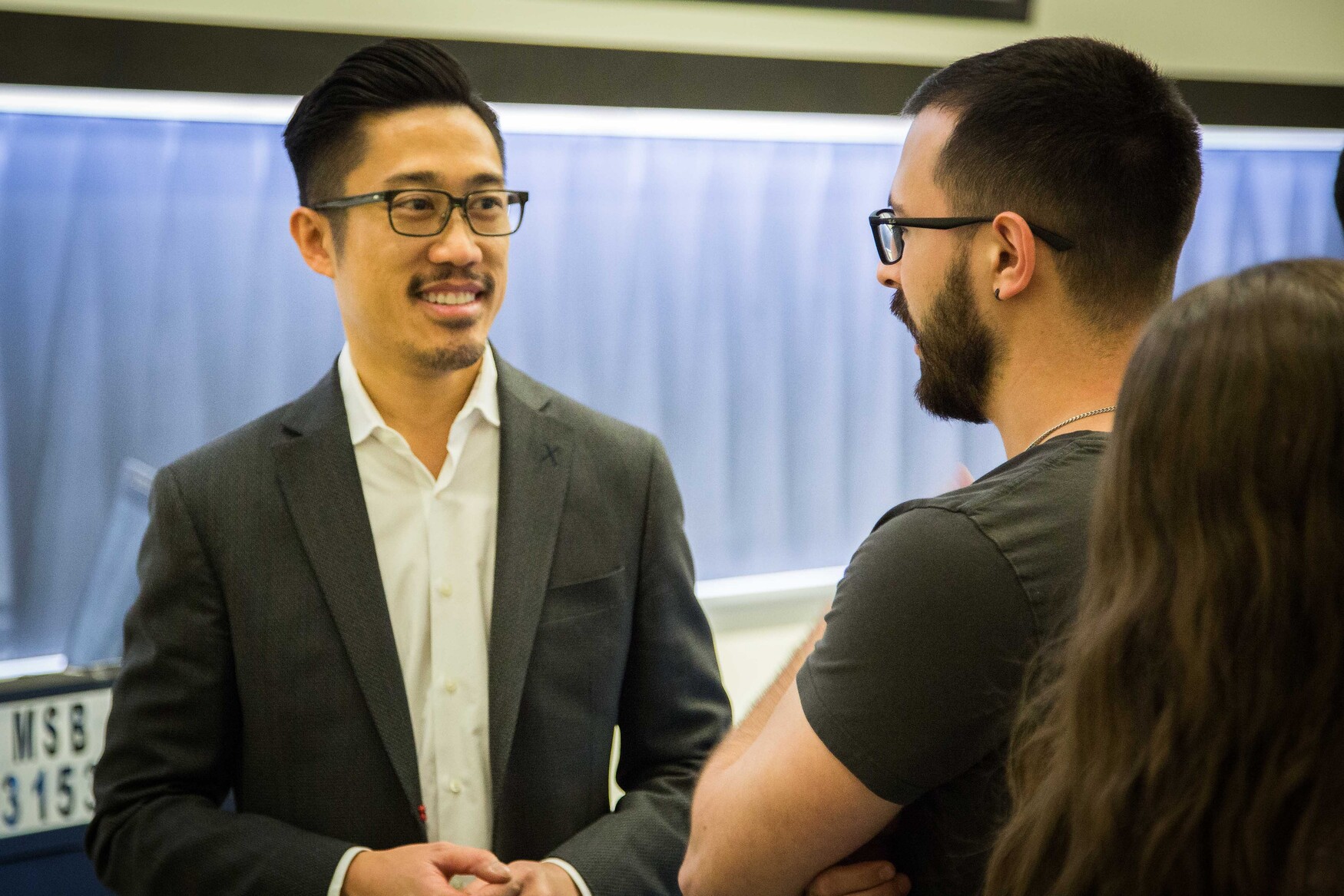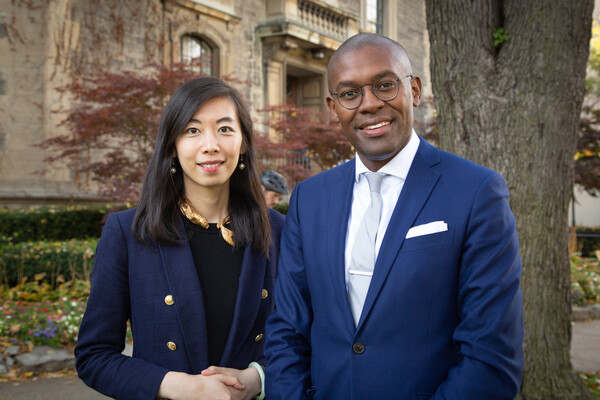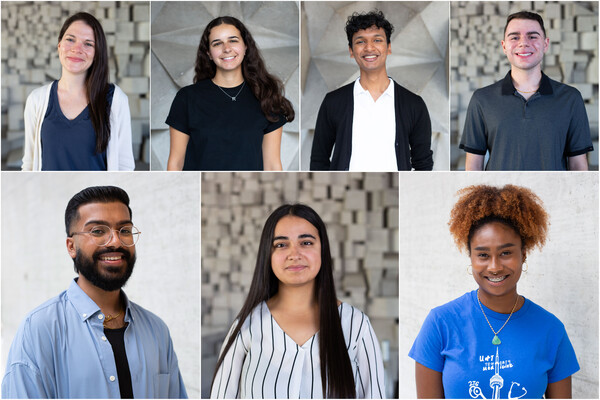Breadcrumbs
- Home
- MD/PhD Program
- News
- MD Students and Teachers Reflect on First Year of New Curriculum
MD Students and Teachers Reflect on First Year of New Curriculum

Jim Oldfield

The University of Toronto’s MD Program held its fourth and final forum of the academic year this week, where first-year students and faculty talked about their experiences in the new Foundations Curriculum, a major renewal of the first two years of medical school that launched last fall.
Professor Marcus Law provided updates about ongoing changes to the curriculum, many of which were based on suggestions from students in the program. Students used the opportunity to share their experiences and ask questions about year two.
“I think the past year has been wonderful for students and faculty,” said Law, director of foundations for the MD Program. “The program launched mostly as we expected, but what I’m most happy about is that we’ve built a program that is truly co-constructed and dynamic.”
Law said the Foundations Curriculum was developed over three years through many consultations with current and recent students, and with U of T faculty members, curriculum experts and hospital leaders, among others. He encourages an ‘open door’ culture, soliciting feedback directly from students verbally and by email as well as through weekly online forums and regular meetings with class and foundations representatives.
The constant dialogue has allowed Law and other faculty to make quick curriculum changes throughout the first year, from adding online and in-person anatomy review sessions to tweaking questions for the case-based learning modules.
 “I don’t anticipate major changes next year, in part because of the changes we made this year. But we’re not aiming for a curriculum that is fixed at any point,” said Law. The broader vision for the curriculum, he added, is built on strong collaboration with education scientists at the Wilson Centre and based on solid research about the best ways to train doctors for the 21st century.
“I don’t anticipate major changes next year, in part because of the changes we made this year. But we’re not aiming for a curriculum that is fixed at any point,” said Law. The broader vision for the curriculum, he added, is built on strong collaboration with education scientists at the Wilson Centre and based on solid research about the best ways to train doctors for the 21st century.
“I think we’ve found a decent balance between adapting to the learning needs of a very heterogeneous study body and staying true to an evidence-based vision of medical education,” Law said.
Tara Evans-Atkinson came from Vancouver to study medicine in Toronto last fall, and she attended the foundations forum this week. “I didn’t expect so many opportunities to offer feedback on the student experience this past year,” she said after the event. “It’s good that students can voice their concerns and I like hearing what they have to say, although overall I’m happy with the new curriculum and to be in this medical school.”
Atkinson said that although the online learning components in the new curriculum limit lecture time and in-class contact with other students, they allow for a lot of self-paced learning, which she likes.
Guided self-regulated learning is a key plank in the new curriculum. The curriculum provides in-person lectures, videos, PDFs, e-modules, quizzes and clinical experience to guide the discovery of content knowledge. Some students learn better through group work and application, so the program includes weekly case-based learning and opportunities to work with real, standardized and virtual patients. “This curriculum is great because it offers students the opportunity to figure out what kind of learning works best for them,” said Patricia Palcu, a foundations representative for MD students on the St. George campus who also spoke at the recent forum.
One aspect of the new program many students like most, Palcu said, is the full day a week they can spend on self-guided learning without classes or other commitments. Some students use that time to complete e-modules, others do research or shadow clinicians to enrich their clinical experiences. Still others take part or all of the day off. “They have the option to do what they like, including exercise and other activities that maintain wellness,” said Palcu. “It can take time to adjust to self-directed learning, but as future physicians it’s a skill we’ll need for the rest of our careers.”
Professor Patricia Houston, vice dean of the MD Program, ended the foundations forum by thanking students for their willingness to engage with the new curriculum. “This year would not have been a success without your understanding, and your commitment to trying something new and disruptive,” she said.
She also recalled some advice she gave those same students when they entered the medical school eight months ago, including the importance of resilience, accepting but not dwelling on failure and keeping a positive attitude. “Most importantly,” she said, “take the summer to take care of yourselves. Spend time with your family and friends. Cherish it, and enjoy.”
News


